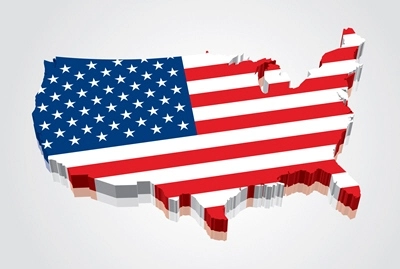Introduction
Hair loss, a common occurrence among American males, often transcends mere physical change, deeply impacting self-esteem and social interactions. In a society where appearance plays a pivotal role, the journey through hair loss can be fraught with challenges. This article delves into the social stigma surrounding hair loss, exploring how American men navigate these waters, striving to maintain their sense of self and social standing amidst a culture obsessed with appearance.
The Psychological Impact of Hair Loss
Hair loss, particularly when it occurs prematurely, can significantly affect a man's psychological well-being. Studies have shown that men experiencing hair loss are more likely to report feelings of depression and anxiety. The fear of aging and the perceived loss of attractiveness can lead to a diminished sense of self-worth. For many American males, hair is not just a part of their physical appearance but a symbol of youth, vitality, and masculinity. The loss of hair, therefore, can feel like a loss of these attributes, leading to a complex emotional response.
Social Stigma and Public Perception
The social stigma associated with hair loss is deeply ingrained in American culture. Media and advertising often perpetuate the notion that a full head of hair is synonymous with attractiveness and success. This societal pressure can exacerbate the emotional toll of hair loss, making men feel judged or less valued. In social settings, men may perceive that their hair loss affects how others interact with them, leading to avoidance of social situations or a reluctance to engage in new relationships. The fear of being perceived as less attractive or older than they are can be a significant barrier to social confidence.
Coping Strategies and Acceptance
In response to the challenges posed by hair loss, many American males employ various coping strategies. Some may turn to hair loss treatments, such as medications or hair transplants, in an effort to combat the physical changes. Others may adopt a more psychological approach, focusing on acceptance and redefining their self-image. Support groups and therapy can play a crucial role in helping men navigate the emotional landscape of hair loss, offering a space to share experiences and strategies for coping.
Embracing a new identity can also be empowering. Many men find that by accepting their hair loss, they can shift their focus to other aspects of their appearance and personality, such as fitness, style, and confidence. This shift can lead to a more holistic sense of self, where hair loss becomes just one part of their identity, rather than defining it entirely.
The Role of Society in Shaping Attitudes
The attitudes of society towards hair loss play a significant role in how American males experience and respond to it. There is a growing movement towards greater acceptance and normalization of hair loss, with public figures and celebrities openly discussing their experiences. This visibility can help to challenge the stigma and encourage a more inclusive understanding of male beauty and aging.
Educational campaigns and open dialogues about hair loss can further contribute to changing societal perceptions. By fostering a culture that values diversity in appearance and emphasizes inner qualities over superficial attributes, society can support men in their journey through hair loss, helping them to maintain their self-esteem and social confidence.
Conclusion
Hair loss among American males is more than a physical change; it is a journey through a complex social and emotional landscape. The stigma surrounding hair loss can deeply impact self-esteem and social interactions, yet through coping strategies, acceptance, and a shifting societal attitude, men can navigate these challenges. By fostering a culture of acceptance and understanding, society can play a crucial role in supporting American males as they redefine their sense of self and maintain their social standing in the face of hair loss.
Contact Us For A Fast And Professional Response

- Unveiling the Silent Saboteur: The Connection Between Scalp Infections and Hair Loss in American Males [Last Updated On: February 18th, 2025] [Originally Added On: February 18th, 2025]
- Revolutionizing Confidence: A Comprehensive Guide to Medical Wigs for Hair Loss in American Males [Last Updated On: February 20th, 2025] [Originally Added On: February 20th, 2025]
- Chemotherapy-Induced Hair Loss in American Males: Understanding, Coping, and Regrowth Strategies [Last Updated On: March 1st, 2025] [Originally Added On: March 1st, 2025]
- Decrypting the Hidden Layers: Hair Loss as a Latent Medical Dilemma [Last Updated On: March 2nd, 2025] [Originally Added On: March 2nd, 2025]
- Exploring the Impact of Thyroid Disorders on Hair Health: Understanding the Connection, Clinical Symptoms, and Effective Management Strategies [Last Updated On: March 3rd, 2025] [Originally Added On: March 3rd, 2025]
- Advancements in Surgical Hair Loss Treatments for Men [Last Updated On: March 4th, 2025] [Originally Added On: March 4th, 2025]
- Comprehensive Guide to Understanding and Managing Hair Loss in American Men [Last Updated On: March 5th, 2025] [Originally Added On: March 5th, 2025]
- Understanding Pediatric Hair Loss: Causes, Impact, and Treatment Options [Last Updated On: March 6th, 2025] [Originally Added On: March 6th, 2025]
- The Efficacy of Over-the-Counter Hair Loss Treatments: Scientific Evidence and Safety Considerations [Last Updated On: March 7th, 2025] [Originally Added On: March 7th, 2025]
- Embracing Holistic Approaches for Hair Health: A Comprehensive Guide for American Males [Last Updated On: March 8th, 2025] [Originally Added On: March 8th, 2025]
- The Genetic Basis of Male Pattern Baldness: Insights, Treatments, and Prevention Strategies [Last Updated On: March 9th, 2025] [Originally Added On: March 9th, 2025]
- Understanding the Link Between Stress and Hair Loss in American Males: A Comprehensive Medical Insight [Last Updated On: March 12th, 2025] [Originally Added On: March 12th, 2025]
- Hormonal Insights into Male Hair Loss: Causes, Treatments, and Lifestyle Impact [Last Updated On: March 13th, 2025] [Originally Added On: March 13th, 2025]
- Understanding Hair Loss in American Men: Separating Myths from Medical Realities [Last Updated On: March 15th, 2025] [Originally Added On: March 15th, 2025]
- Allergies and Hair Loss: Exploring the Link for American Males [Last Updated On: March 16th, 2025] [Originally Added On: March 16th, 2025]
- Understanding Hair Loss: Causes, Types, and Advanced Treatments for American Males [Last Updated On: March 17th, 2025] [Originally Added On: March 17th, 2025]
- Male Hair Loss: Understanding Genetic, Hormonal, and Lifestyle Risk Factors [Last Updated On: March 18th, 2025] [Originally Added On: March 18th, 2025]
- Topical Treatments for Hair Loss: Efficacy, Application, and Emerging Options [Last Updated On: March 18th, 2025] [Originally Added On: March 18th, 2025]
- Hair Loss in American Men: Psychological Impacts and Holistic Coping Strategies [Last Updated On: March 19th, 2025] [Originally Added On: March 19th, 2025]
- Revolutionizing Hair Loss Treatment: Innovations and Hope for American Males [Last Updated On: March 20th, 2025] [Originally Added On: March 20th, 2025]
- Diabetes and Hair Loss in American Males: Understanding the Link and Managing Risks [Last Updated On: March 21st, 2025] [Originally Added On: March 21st, 2025]
- Monogenic Hair Loss: Genetic Insights and Management for American Males [Last Updated On: March 21st, 2025] [Originally Added On: March 21st, 2025]
- Antidepressants and Hair Loss in Men: Mechanisms, Identification, and Management Strategies [Last Updated On: March 21st, 2025] [Originally Added On: March 21st, 2025]
- Alopecia Universalis: Understanding, Managing, and Coping for American Males [Last Updated On: March 21st, 2025] [Originally Added On: March 21st, 2025]
- Hair Loss in American Males: A Potential Indicator of Heart Disease Risk [Last Updated On: March 22nd, 2025] [Originally Added On: March 22nd, 2025]
- Effective Hair Loss Treatments for American Men: Medications and Mechanisms [Last Updated On: March 22nd, 2025] [Originally Added On: March 22nd, 2025]
- Drug-Induced Hair Loss in American Males: Causes, Symptoms, and Management Strategies [Last Updated On: March 22nd, 2025] [Originally Added On: March 22nd, 2025]
- Innovative Hair Loss Solutions for American Males: From Stem Cells to 3D Printing [Last Updated On: March 22nd, 2025] [Originally Added On: March 22nd, 2025]
- Hair Follicle Miniaturization: Understanding and Managing Hair Loss in American Males [Last Updated On: March 23rd, 2025] [Originally Added On: March 23rd, 2025]
- Steroids and Hair Loss in American Men: Causes, Risks, and Management Strategies [Last Updated On: March 23rd, 2025] [Originally Added On: March 23rd, 2025]
- Autoimmune Disorders and Hair Loss in American Males: Mechanisms, Conditions, and Treatments [Last Updated On: March 23rd, 2025] [Originally Added On: March 23rd, 2025]
- Male Hair Loss: Causes, Prevention, and Treatment Options for American Men [Last Updated On: March 23rd, 2025] [Originally Added On: March 23rd, 2025]
- Anabolic Steroids and Hair Loss: Mechanisms, Prevalence, and Management in American Males [Last Updated On: March 23rd, 2025] [Originally Added On: March 23rd, 2025]
- Hair Loss in Young American Males: Causes, Impacts, and Treatment Needs [Last Updated On: March 23rd, 2025] [Originally Added On: March 23rd, 2025]
- Telogen Effluvium in American Men: Causes, Symptoms, and Management Strategies [Last Updated On: March 23rd, 2025] [Originally Added On: March 23rd, 2025]
- Understanding Hair Loss: Causes, Treatments, and Hope for American Men [Last Updated On: March 23rd, 2025] [Originally Added On: March 23rd, 2025]
- Aromatherapy for Hair Loss: Benefits, Evidence, and Considerations for American Males [Last Updated On: March 23rd, 2025] [Originally Added On: March 23rd, 2025]
- Medical Hair Loss in Men: Causes, Management, and Prevention Strategies [Last Updated On: March 23rd, 2025] [Originally Added On: March 23rd, 2025]
- Aging Males and Hair Loss: Causes, Impacts, and Management Strategies [Last Updated On: March 24th, 2025] [Originally Added On: March 24th, 2025]
- Anemia and Hair Loss in American Males: Causes, Diagnosis, and Management Strategies [Last Updated On: March 24th, 2025] [Originally Added On: March 24th, 2025]
- Guide to Hair Loss Surgery Techniques for American Males [Last Updated On: March 24th, 2025] [Originally Added On: March 24th, 2025]
- Hair Cloning: A Breakthrough in Hair Loss Treatment for American Males [Last Updated On: March 24th, 2025] [Originally Added On: March 24th, 2025]
- Innovative Strategies to Mitigate Chemotherapy-Induced Hair Loss in American Males [Last Updated On: March 25th, 2025] [Originally Added On: March 25th, 2025]
- Vitamin Deficiencies and Hair Loss in American Males: Causes and Solutions [Last Updated On: March 25th, 2025] [Originally Added On: March 25th, 2025]
- Hair Extensions and Permanent Hair Loss: Risks for American Males [Last Updated On: March 25th, 2025] [Originally Added On: March 25th, 2025]
- Post-COVID Hair Loss in American Males: Causes, Symptoms, and Management Strategies [Last Updated On: March 26th, 2025] [Originally Added On: March 26th, 2025]
- LLLT: A Non-Invasive Hair Loss Solution for American Men [Last Updated On: March 26th, 2025] [Originally Added On: March 26th, 2025]
- American Men Triumph Over Hair Loss: Success Stories and Effective Treatments [Last Updated On: March 27th, 2025] [Originally Added On: March 27th, 2025]
- AI Revolutionizes Male Pattern Baldness Diagnosis and Treatment [Last Updated On: March 27th, 2025] [Originally Added On: March 27th, 2025]
- Androgenetic Alopecia: Advances in Treatment and Understanding Mechanisms [Last Updated On: March 27th, 2025] [Originally Added On: March 27th, 2025]
- Advanced Diagnostic Technologies for Hair Loss in American Men: A Comprehensive Overview [Last Updated On: March 27th, 2025] [Originally Added On: March 27th, 2025]
- Thyroid Disorders and Hair Loss in American Males: Causes and Management [Last Updated On: March 27th, 2025] [Originally Added On: March 27th, 2025]
- Immune System Disorders and Hair Loss in American Males: Mechanisms, Symptoms, and Treatments [Last Updated On: March 27th, 2025] [Originally Added On: March 27th, 2025]
- Managing Hair Loss: Medical Insights and Societal Perceptions for American Men [Last Updated On: March 27th, 2025] [Originally Added On: March 27th, 2025]
- Shock Loss After Hair Transplant: Causes, Timeline, and Management for American Males [Last Updated On: March 27th, 2025] [Originally Added On: March 27th, 2025]
- Hair Dyes and Hair Loss in American Males: Investigating the Correlation [Last Updated On: March 27th, 2025] [Originally Added On: March 27th, 2025]
- Postpartum Hair Loss: Causes, Effects, and Support Strategies for New Mothers [Last Updated On: March 27th, 2025] [Originally Added On: March 27th, 2025]
- PCOS-Like Symptoms and Hair Loss in American Males: Hormonal Insights [Last Updated On: March 27th, 2025] [Originally Added On: March 27th, 2025]
- PRP Therapy: A Promising Solution for Hair Loss in American Men [Last Updated On: March 28th, 2025] [Originally Added On: March 28th, 2025]
- High Blood Pressure and Hair Loss: Understanding the Indirect Links in American Males [Last Updated On: March 29th, 2025] [Originally Added On: March 29th, 2025]
- Androgenetic Alopecia: Genetic Insights and Emerging Treatments for Male Pattern Baldness [Last Updated On: March 29th, 2025] [Originally Added On: March 29th, 2025]
- Scalp Psoriasis in American Males: Impacts, Hair Loss, and Management Strategies [Last Updated On: March 29th, 2025] [Originally Added On: March 29th, 2025]
- Trichotillomania in American Males: Understanding, Impact, and Treatment Options [Last Updated On: March 30th, 2025] [Originally Added On: March 30th, 2025]
- Rogaine: Benefits, Risks, and Realistic Expectations for Hair Loss Treatment [Last Updated On: March 30th, 2025] [Originally Added On: March 30th, 2025]
- Understanding and Treating Hair Loss in Men: A Guide for Physicians [Last Updated On: March 31st, 2025] [Originally Added On: March 31st, 2025]
- Male Menopause and Hair Loss: Understanding and Managing Thinning in American Men [Last Updated On: April 2nd, 2025] [Originally Added On: April 2nd, 2025]
- Stem Cell Therapy: A New Hope for Hair Loss in American Males [Last Updated On: April 4th, 2025] [Originally Added On: April 4th, 2025]
- Hair Loss in American Men: Psychological Impacts and Holistic Coping Strategies [Last Updated On: April 4th, 2025] [Originally Added On: April 4th, 2025]
- Efficacy of Hair Loss Shampoos for American Males: Ingredients and Benefits Analyzed [Last Updated On: April 5th, 2025] [Originally Added On: April 5th, 2025]
- Hair Loss in American Males: Psychological Impacts and Holistic Treatment Approaches [Last Updated On: April 6th, 2025] [Originally Added On: April 6th, 2025]
- Understanding CCCA: Causes, Symptoms, and Management for American Males [Last Updated On: April 7th, 2025] [Originally Added On: April 7th, 2025]
- Minoxidil: Effective Hair Loss Treatment for American Men [Last Updated On: April 7th, 2025] [Originally Added On: April 7th, 2025]
- Hair Breakage vs. Hair Loss: Key Differences and Solutions for American Males [Last Updated On: April 7th, 2025] [Originally Added On: April 7th, 2025]
- Managing Hair Loss After Bariatric Surgery in American Males: Causes and Solutions [Last Updated On: April 9th, 2025] [Originally Added On: April 9th, 2025]
- Smoking and Hair Loss: Mechanisms, Evidence, and Mitigation Strategies for American Males [Last Updated On: April 11th, 2025] [Originally Added On: April 11th, 2025]
- Lifestyle Strategies to Combat Hair Loss in American Males [Last Updated On: April 11th, 2025] [Originally Added On: April 11th, 2025]
- Weight Loss Diets and Hair Loss: Insights for American Males [Last Updated On: April 12th, 2025] [Originally Added On: April 12th, 2025]
- Gastrointestinal Health and Hair Loss: Mechanisms, Impacts, and Management Strategies [Last Updated On: April 12th, 2025] [Originally Added On: April 12th, 2025]
- Dietary Strategies for American Men to Combat Hair Loss and Promote Hair Health [Last Updated On: April 13th, 2025] [Originally Added On: April 13th, 2025]
- Protein Shakes and Hair Loss: Understanding the Link for American Males [Last Updated On: April 13th, 2025] [Originally Added On: April 13th, 2025]
















